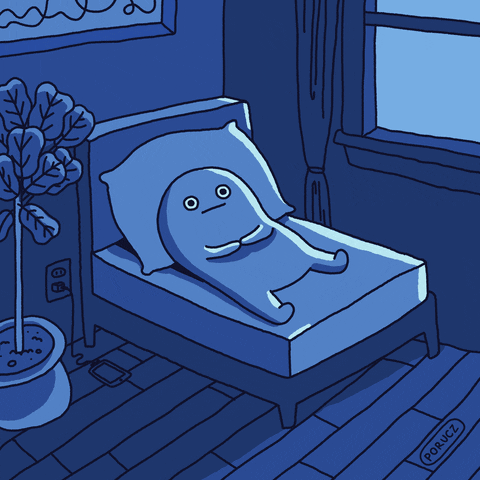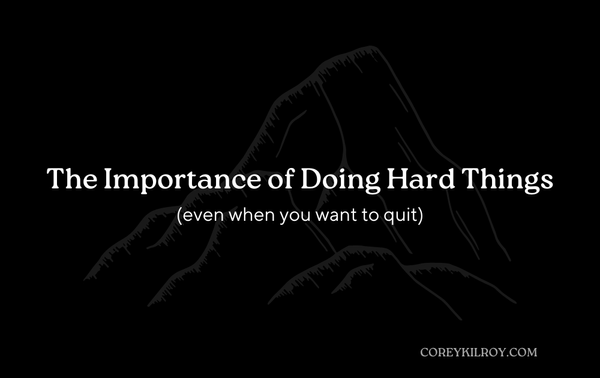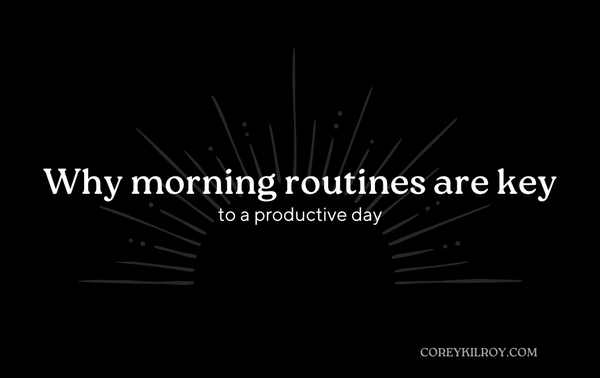Caffeine - The Good & The Bad.

"To an old man a cup of coffee is like the door post of an old house - it sustains and strengthens him." -Old Bourbon Proverb
Ahhh – *yawns* – I NEED a big cup of coffee to get me through the day.
This sound familiar to you?
No matter where you go, somebody at the workplace, school, or general public, is going to say this outloud to themselves to ‘jumpstart’ their morning.
But is this chronic consumption of caffeine a good or bad thing?
First…
What is Caffeine?
Caffeine is a stimulant and one of the most commonly used drugs in the world.
Every day, millions of individuals consume this chemical to help them stay more alert and get a “jolt” of energy.

At least that's what we all hope for.
Besides giving your brain a boost, caffeine can affect your entire body by increasing your heart rate, temperature, blood sugar, blood pressure and number of trips taken to the bathroom.
NOTE: This is just the chemical caffeine we’re referencing here. HOW you consume this caffeine is a different story.
Much of the research on the perks of caffeine revolves around coffee and tea.
Energy drinks and shots (i.e. Bang, Red Bull, Monster) are a different story.
Ounce for ounce, they can pack in more caffeine than other caffeinated beverages:
- Energy shots: 90–171 milligrams caffeine/ounce.
- Coffee: 12.8–25 milligrams caffeine/ounce.
- Energy drinks: 2.5–35.7 milligrams caffeine/ounce.
- Soda not labeled as “caffeine-free”: 2.9–4.5 milligrams caffeine/ounce.
Why Should You Care?
Well… I mean, nearly everybody all around the world consumes caffeine in one form or another.
In fact, 54% of American adults start their day with coffee. Plus, even if you’re not one of them, caffeine may still be a part of your daily routine.
A study found that 87% of individuals reported consuming caffeinated products ≥1 time/week.
While another survey of 37,602 people found that 85% of those ages 2 and up drink some kind of caffeinated beverage every day.
Whether you’re the stereotypical coffee drinker before a shift at work, or the “gym-bro” that ingests 3 scoops of pre workout before a lift, we’ve all used caffeine at one point or another to give ourselves a little “boost”.
And to all you chocolate lovers – caffeine is found in that too!
About 12 mg of caffeine per ounce of chocolate.
However, having too much caffeine can have some adverse effects on the human body, too.
Here are the pros and cons of caffeine consumption to give you some more insight.
Benefits:
1. Mental Alertness & Productivity

Caffeine makes you feel more alert by blocking adenosine receptors in your brain. It makes you more awake even if you didn’t sleep so well the night before.
Being able to delay fatigue is definitely great, especially if you need a little “pick-me-up” to start your day.
Also, the stimulating effect of coffee can reduce the perception of fatigue when exercising, thus being useful while training to allow them to push harder during tough sets.
NOTE: Proper recovery should be everyone's priority, especially for those of you with an active lifestyle.
Nothing, I mean nothing, can replace the benefits and essentiality sleep has on the body’s ability to recover.
And yes, even your quadruple shot of espresso from Starbies.
Caffeine is never a proper substitute for good sleep. But, this could be covered in a whole separate essay.
2. Metabolism & Weight Loss
The rate at which you burn calories at rest is called resting metabolic rate (RMR).
The higher your metabolic rate, the easier it may be for you to lose weight.
Caffeine has the effect of increasing your RMR. Studies show that caffeine can increase RMR by 3–11%, with larger doses having a greater effect.
Caffeine also stimulates thermogenesis, which is defined as the metabolic process by which organisms burn calories in order to generate heat.
In simple terms, you’re burning more calories when you consume caffeine.
This is because caffeine stimulates the release of epinephrine which then promotes the release of fats from your fatty tissue so they can be used for energy.
One experiment showed that caffeine did slightly boost participants’ metabolism for 3 hours after drinking.
Not too shabby, eh?
3. Prevention of Chronic Illness
One Harvard study showed that those drinking 4–5 cups of coffee daily cut their risk for Parkinson’s by 50%.
And…
Coffee consumption has been linked to lower risk for type 2 diabetes, Parkinson’s, Alzheimer’s and some cancers.
Statistics aside, caffeine can be shown to be beneficial in reducing the risk of some chronic illnesses.
NOTE: Although this may seem revolutionary, it’s important to consider that the studies are looking at correlation and not causation.
Furthermore, many of the studies used coffee and tea as the caffeinated food under study, in which these beverages contain several compounds rich in antioxidant activity, which may help your body against oxidative damage.
So, housing cans of Red Bull every day are not going to lead to the same effects.

4. Memory
Researchers from Johns Hopkins University found that a dose of caffeine after a learning session may help boost long-term memory.
So all you late-night University students walking around with a big cup of Joe, maybe you’re onto something.
Another study also found that caffeine has a specific benefit for memory during students’ “non-optimal” time of the day – early mornings.
So all you early birds, that cup of coffee in the morning (two hours after waking) will do you right for your busy day.
Risks
1. Disrupts Sleep

We talked about all the benefits caffeine has to mental alertness and combating tiredness.
This remains true, however, it’s important to keep caffeine consumption prior to the evening.
The general consensus is that no caffeine should be consumed after 4 pm.
This is because if done otherwise, then you may experience some trouble falling or staying asleep at night, due to the caffeine remaining in your system.
Consuming caffeine 3 or even 6 hours prior to sleep can significantly disrupt your sleep and cause unwanted insomnia.
2. Addictiveness
You may or may not know this already, but caffeine has addictive properties that may lead to physical dependence.
This is because of the way caffeine affects the human brain and produces the alert feeling that people crave.
Because the chemical in caffeine is both water and fat-soluble, it’s able to penetrate the blood-brain barrier and enter the brain.
If someone drinks caffeine on a daily basis, then they’ll develop a tolerance to it just as they would any other drug or alcohol.
After a while, the user will require more and more caffeine to produce the same effects of alertness they desire.
“Structurally, Caffeine closely resembles a molecule called adenosine that’s naturally present in the brain. Caffeine resembles the molecule so much that it can fit neatly into the brain cells’ receptors for adenosine, effectively blocking them off. Normally, the adenosine produced over time locks into these receptors and produces a feeling of tiredness. When Caffeine molecules are blocking those receptors, they prevent this from occurring; a sense of alertness and energy is experienced until the caffeine is metabolized. Additionally, some of the brain’s own natural stimulants are released — such as dopamine — and work more effectively when the adenosine receptors are blocked. The surplus of adenosine cues the adrenal glands to secrete adrenaline, another Stimulant, and this further increases alertness and reduces feelings of tiredness.” (source)
So in short, regular caffeine consumers are actually changing their brains chemistry and physical characteristics over time… no bueno.

It’s important to cycle on and off caffeine here and there. I typically like to go on a brief “detox” every few weeks or so and not consume any caffeine for the week to get my tolerance back to baseline.
Or I may only consume caffeinated pre-workout on training days that are higher in volume.
3. Gastrointestinal Problems
Since caffeine is a stimulant, it increases gut mobility. This means an increase in the contraction of the muscles that propel contents in the gastrointestinal tract.
This stimulating effect may lead to loose stools or diarrhea, which can contribute to dehydration.
So all you caffeine junkies that need to hit the bathroom after some coffee or fat scoop of pre-workout, now you know why.
4. Anxiety
According to Harvard Medical School, caffeine use can mimic symptoms of anxiety.
Ever get those jitters and leg shakes after taking pre-workout or drinking coffee?
That caffeine is most likely causing it – unless you’re just chronically anxious, in which case, my condolences.
The caffeine-induced symptoms that can mirror anxiety include:
- Nervousness
- Restlessness
- Trouble sleeping
- Fast heart rate
- Gastrointestinal problems
In the end…
Caffeine can have its pros and cons no matter how it’s consumed – whether you’re a caffeine junkie that takes 4 scoops or pre before the gym, or the casual cup of Joe consumer. It’s important to have some discipline when consuming a product like this, but taking the proper precautions will prevent any of the “cons” listed above.
TL;DR
- Caffeine is a stimulant and one of the most commonly used drugs in the world.
- Almost everybody is consuming caffeine whether they know it or not.
- Caffeine has it’s pros and it's cons when consumed.
Good luck and #KEEPPLUGGIN
🙇🏻♂️🌱 Until Next Time, C.



